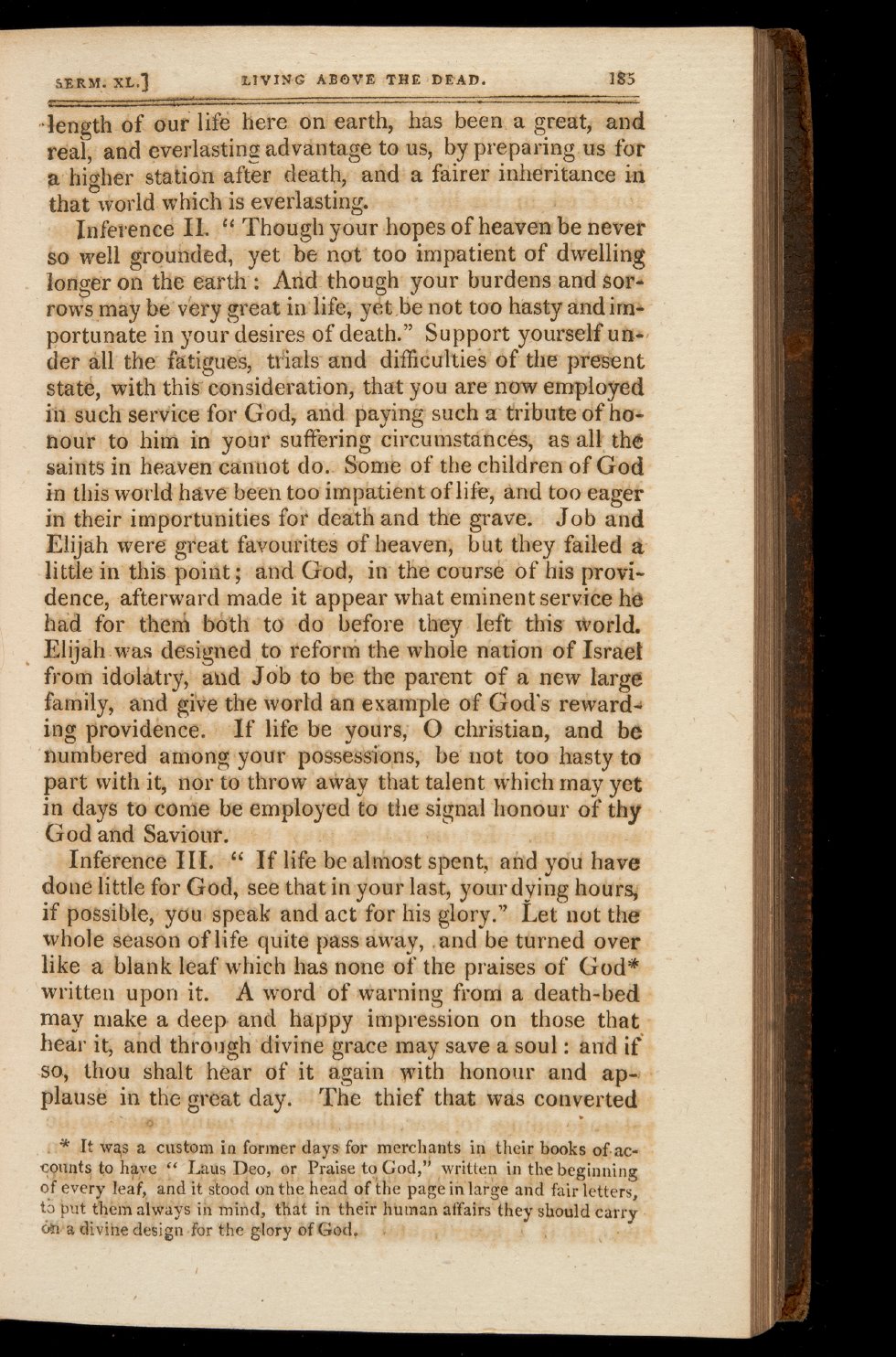

SERM.
XL.]
Liv1VG
ABOVE
THE DEAD.
1$5
length
of our
life
here on earth, has been
a
great,
and
real, and everlasting
advantage
to
us,
by
preparing
us
for
a
higher station
after
death, and a
fairer inheritance
in
that
world which
is
everlasting.
Inference
II.
"
Though your
hopes
of
heaven be never
so well
grounded, yet
be
not
too
impatient
of
dwelling
longer on
the earth
:
Arid
though
your
burdens and sor-
rows
may be very
great
in
life,
yet
be
not too
hasty and im-
portunate
in
your
desires
of
death."
Support yourself un-
der
áll
the
fatigues,
trials-
and
difficulties
of
the
present
state,
with this
consideration,
that
you
are
now
employed
in such
service
for God, and
paying such a
tribute of
ho-
nour
to him in
your
suffering
circumstances,
as all
the
saints
in
heaven
cannot
do.
Some
of
the
children
of God
in this world
have
been too
impatient of
life,
and
too
eager
in
their importunities for death
and the
grave.
Job
and
Elijah
were
great
favourites
of
heaven,
but
they failed
a
little
in this
point;
and God,
in
the coursé
of
his
provi-
dence,
afterward made
it appear
what
eminent
service he
had for them both to
do
before they
left
this
world.
Elijah
was
designed
to
reform
the whole
nation
of
Israel
from
idolatry, and
Job
to
be
the
parent
of
a
new
large
family,
and
give
the world an example
of
God's reward
-,
ing providence.
If
life
be
yours,
O
christian, and
be
numbered among your
possessions,
be
not
too hasty
to
part
with
it,
nor
to
throw
away
that talent
which may
yet
in
days
to
come
be
employed
to
the
signal
honour
of
thy
God
and Saviour.
Inference
III.
"
If
life be
almost spent,
and you have
done
little for God,
see
that
in
your
last,
your
dying hours;
if
possible, you
speak
and
act
for
his
glory."
Let not
the
whole season
of
life quite pass away,
.
and
be
turned
over
like a blank
leaf
which has none
of
the praises
of
Gods`
written upon
it. A word
of warning
from
a death -bed
may
make
a
deep and
happy impression
on
those
that
hear
it,
and through
divine grace may save a soul
:
and
if
so,
thou shalt hear
of it
again
with
honour and
ap-
plause
in the
great
day.
The thief that
was
converted
'k
It
was
a custom
in
former days
for
merchants
in
their
books
of
ac-
counts
to have
"
Laus Deo, or Praise to
God,"
written
in
the
beginning
of every leaf, and it
stood on
the head
of
the page
in
large and fair letters,
to
put
them
always
in minci,
that
in
their
human affairs
they
should
carry
6
a
divine design
for
the
glory
ofGod.

















